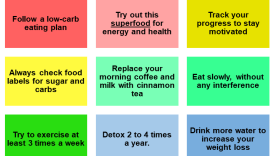The Ultimate Guide to Embracing a Healthy Lifestyle

Importance of a Healthy Lifestyle
In today’s fast-paced world, the importance of a healthy lifestyle cannot be overstated. Many individuals find themselves juggling work, family, and social commitments, often neglecting their own health in the process. Yet, a balanced lifestyle fosters not only physical well-being but mental clarity and emotional resilience as well. It serves as a foundation for maintaining energy levels and managing daily stresses effectively. A personal anecdote to consider: someone who regularly practices healthy habits, like preparing nutritious meals or engaging in regular exercise, often finds themselves feeling more energized and capable of handling life’s challenges. This realization can be a powerful motivator for many.
- The Ultimate Guide to Embracing a Healthy Lifestyle
- Importance of a Healthy Lifestyle
- Benefits of Embracing a Healthy Lifestyle
- Nutrition
- Balanced Diet
- Hydration and Its Role
- Physical Activity
- Importance of Regular Exercise
- Different Types of Physical Activities
- Mental Health
- Managing Stress
- Importance of Adequate Sleep
- Self-Care Practices
- Mindfulness and Meditation
- Relaxation Techniques
- Social Connections
- Building Supportive Relationships
- Participating in Community Activities
- Healthcare Checkups
- Importance of Regular Health Checkups
- Preventive Healthcare Measures
- Healthy Habits
- Quitting Smoking and Limiting Alcohol
- Creating a Routine for Healthy Living
- Setting Goals
- Establishing Realistic Health Goals
- Tracking Progress and Making Adjustments
Benefits of Embracing a Healthy Lifestyle
Embracing a healthy lifestyle yields numerous benefits that impact every aspect of life. Notably, these include:
- Enhanced Physical Health: Reducing the risk of chronic diseases.
- Improved Mental Health: Greater resilience against anxiety and depression.
- Increased Longevity: Enjoying a longer, healthier life.
- Greater Productivity: Boosting focus and efficiency in tasks.
By adopting healthy habits, individuals not only transform their bodies but also enrich their lives significantly. The journey to well-being is rewarding, providing a wealth of positive changes.
Nutrition
Balanced Diet
Continuing the journey towards a healthier lifestyle, nutrition plays a crucial role. A balanced diet, which includes a variety of food groups, ensures that the body receives essential nutrients. These nutrients are vital for maintaining energy, supporting growth, and promoting overall health. Consider the classic plate model:
- Fruits and Vegetables: Aim for half your plate to be colorful fruits and veggies.
- Proteins: Include lean meats, beans, and legumes.
- Whole Grains: Opt for oats, brown rice, and whole grain bread.
- Dairy or Alternatives: Choose low-fat milk or fortified plant-based options.
Embracing this variety can be rewarding, as a personal story from a friend illustrated—she found that incorporating different foods not only satisfied her cravings but also made meals more enjoyable.
Hydration and Its Role
Equally important is hydration, which can significantly influence how one feels and performs daily. Water is fundamental for:
- Regulating body temperature
- Transporting nutrients
- Removing waste
A common guideline is to aim for eight glasses a day, but individual needs may vary. For example, after starting a new fitness regimen, many find themselves needing more water. Keeping a reusable water bottle close by is a simple yet effective reminder to stay hydrated. Through mindful nutrition and hydration, individuals can truly enhance their well-being!
Physical Activity
Importance of Regular Exercise
Transitioning from nutrition, the importance of regular exercise becomes evident as part of a healthy lifestyle. Engaging in physical activity not only boosts physical fitness but also contributes significantly to mental health. For instance, a friend who committed to a daily workout routine shared how it enhanced her mood and energy levels. She felt more focused at work and had better sleep quality, which are fantastic benefits of maintaining an active lifestyle. Regular exercise offers various advantages, including:
- Weight Management: Helps in maintaining a healthy weight.
- Improved Cardiovascular Health: Increases heart health and circulation.
- Enhanced Mood: Reduces symptoms of anxiety and depression.
Different Types of Physical Activities
When it comes to physical activities, the options are diverse and enjoyable! Examples include:
- Aerobic Exercises: What many know as cardio—running, cycling, or swimming.
- Strength Training: Building muscle through weightlifting or resistance bands.
- Flexibility and Balance: Activities like yoga or Pilates.
Rather than viewing exercise as a chore, finding activities that resonate with personal interests can make a world of difference. This could be anything from dancing to hiking. By integrating these types of activities into daily routines, individuals can undoubtedly enrich both their physical and mental well-being!
Mental Health
Managing Stress
Moving on from physical activity, mental health is equally essential in the pursuit of a healthy lifestyle. Managing stress is a crucial component that allows individuals to navigate daily challenges with resilience. For example, a colleague who once struggled with work-related stress found relief after adopting simple mindfulness techniques like deep breathing and short meditation sessions throughout the day. These practices helped him maintain a calmer mindset and improved his overall happiness. Some effective stress management techniques include:
- Regular Exercise: A natural stress reliever that improves mood.
- Mindfulness Practices: Engaging in meditation or yoga.
- Time Management: Prioritizing tasks to avoid feeling overwhelmed.
Importance of Adequate Sleep
Another essential aspect of mental health is the importance of adequate sleep. Quality sleep plays a vital role in mood regulation, cognitive function, and overall well-being. Many people underestimate its impact. For instance, when someone starts prioritizing sleep, they often notice better focus, improved memory, and an ability to handle stress more effectively. To promote better sleep, consider:
- Establishing a Sleep Routine: Consistent bedtimes and wake-ups.
- Creating a Restful Environment: A dark, cool, and quiet room.
- Limiting Screen Time: Reducing exposure to screens before bedtime.
By focusing on managing stress and prioritizing sleep, individuals can significantly enhance their mental health, paving the way for a more balanced life.
Self-Care Practices
Mindfulness and Meditation
Continuing the discussion on mental health, self-care practices such as mindfulness and meditation can greatly enhance overall well-being. Engaging in mindfulness helps individuals stay present in the moment, reducing anxiety and stress. A friend of mine, overwhelmed with daily responsibilities, started a five-minute mindfulness meditation each morning. She found that this simple practice allowed her to approach her day with clarity and a calmer mindset. Some effective mindfulness techniques include:
- Breathing Exercises: Focus on inhaling and exhaling deeply.
- Body Scanning: A technique that encourages awareness of different body parts.
- Mindful Walking: Concentrating on the movement of legs and sensations of the ground beneath.
Relaxation Techniques
In addition to mindfulness, incorporating relaxation techniques can further promote self-care. Activities like progressive muscle relaxation and guided imagery can help combat stress. Personally, I’ve found that taking just a few minutes to stretch and unwind after a long day can make a significant difference in my mood. Here are a few relaxation techniques to consider:
- Progressive Muscle Relaxation: Tensing and relaxing muscle groups, one at a time.
- Deep Breathing: Taking slow, deep breaths to calm the body.
- Gentle Yoga: Combining movement with deep breathing for relaxation.
These self-care practices guide individuals toward a more balanced life, fostering resilience and inner peace. By prioritizing mindfulness and relaxation, everyone can take essential steps towards improved emotional well-being.
Social Connections
Building Supportive Relationships
Transitioning from self-care practices, the role of social connections in enhancing one’s well-being is equally crucial. Building supportive relationships can provide emotional sustenance and foster resilience in tough times. For instance, a close friend who experienced personal challenges found incredible strength in the support of a close-knit group of friends. Their encouragement helped her navigate difficult moments and celebrate successes. To cultivate supportive relationships, consider:
- Reaching Out: Make time for friends and family through regular calls or meet-ups.
- Being Vulnerable: Sharing personal thoughts can strengthen bonds.
- Active Listening: Show genuine interest in others’ feelings and experiences.
Participating in Community Activities
In addition to personal relationships, participating in community activities can significantly boost social connections. Engaging with others in shared interests, like volunteering or joining clubs, creates a sense of belonging. A local volunteer opportunity not only allows individuals to give back but also expands their social circles. Benefits of community involvement include:
- Meeting New People: Expanding your social network.
- Enhancing Skills: Learning through collaborative activities.
- Boosting Mental Health: Reducing feelings of isolation through shared experiences.
By prioritizing social connections through supportive relationships and community involvement, individuals can enrich their lives and foster a strong foundation for mental well-being.
Healthcare Checkups
Importance of Regular Health Checkups
Building upon the importance of social connections, the significance of healthcare checkups cannot be overlooked in maintaining a healthy lifestyle. Regular health checkups are vital because they help identify potential health issues before they become serious. A friend of mine discovered that she had high cholesterol during a routine checkup, allowing her to make necessary lifestyle changes before complications arose. Some essential benefits of regular health checkups include:
- Early Detection: Catching illnesses in their initial stages.
- Monitoring Existing Conditions: Keeping chronic diseases under control.
- Personalized Health Plans: Creating tailored strategies for better health outcomes.
Preventive Healthcare Measures
In conjunction with regular checkups, preventive healthcare measures play a crucial role in health maintenance. These proactive steps can significantly reduce the risk of developing serious conditions. Simple actions, such as receiving vaccinations, performing self-examinations, and maintaining healthy lifestyle habits, can make a difference. Consider these preventive measures:
- Vaccinations: Staying up to date with necessary immunizations.
- Screenings: Participating in recommended screenings based on age and risk factors.
- Healthy Lifestyle Choices: Prioritizing nutritious diets and regular exercise.
By investing time in healthcare checkups and preventive measures, individuals can safeguard their health and enjoy a longer, healthier life. Taking these proactive steps is a commitment worth making for overall well-being.
Healthy Habits
Quitting Smoking and Limiting Alcohol
As we shift focus from healthcare checkups to healthy habits, two of the most impactful lifestyle changes individuals can make are quitting smoking and limiting alcohol consumption. These changes can significantly enhance overall health. For instance, a family member of mine who quit smoking shared how her lung capacity improved almost immediately, making daily activities feel easier and more enjoyable. Consider these benefits of quitting smoking and limiting alcohol:
- Better Respiratory Health: Improved lung function and reduced risk of diseases.
- Heart Health: Lowered blood pressure and reduced risk of heart disease.
- Enhanced Mental Clarity: Improved focus and cognitive function.
Creating a Routine for Healthy Living
In addition to eliminating harmful habits, creating a routine for healthy living can be game-changing. Establishing consistent daily patterns encourages positive behaviors that are vital for long-term health. A colleague who committed to a daily routine—incorporating exercise, meal prep, and self-care—found that it reduced stress and made healthier choices more manageable. To cultivate a healthy routine, consider:
- Setting Specific Goals: Small, achievable targets to maintain motivation.
- Scheduling Exercise: Dedicating time for physical activity daily.
- Meal Planning: Preparing nutritious meals in advance to avoid unhealthy impulsive choices.
By actively committing to these healthy habits, individuals can not only transform their lifestyle but also reap the long-term rewards of enhanced well-being. Adopting such practices fosters resilience and a more fulfilling, vibrant life.
Setting Goals
Establishing Realistic Health Goals
Transitioning from healthy habits to goal-setting is vital in maintaining motivation and accountability on the journey to wellness. Establishing realistic health goals makes it easier to stay focused and engaged. For example, one of my friends aimed to run a 5K but started by setting smaller milestones, like jogging for 10 minutes without stopping. This approach gave her a sense of accomplishment and fueled her commitment to the larger goal. When setting health goals, consider the SMART criteria:
- Specific: Clearly define what you want to achieve.
- Measurable: Ensure you can track your progress.
- Achievable: Set realistic goals based on your capabilities.
- Relevant: Align your goals with your overall health objectives.
- Time-bound: Set a deadline to maintain urgency.
Tracking Progress and Making Adjustments
Once goals are established, tracking progress is crucial. By monitoring how well you adhere to your goals, adjustments can be made to stay on track. For example, if someone finds their initial exercise plan too daunting, they might switch to shorter workouts and gradually increase intensity. Some effective ways to track progress include:
- Journaling: Documenting daily activities, food intake, and feelings.
- Using Apps: Downloading fitness or health tracking applications for convenience.
- Regular Check-ins: Scheduling weekly reviews to assess progress and make necessary adjustments.
By setting realistic health goals and actively tracking progress, individuals empower themselves to cultivate lasting change and achieve well-being. The journey becomes not just about the destination but also about embracing the process.




